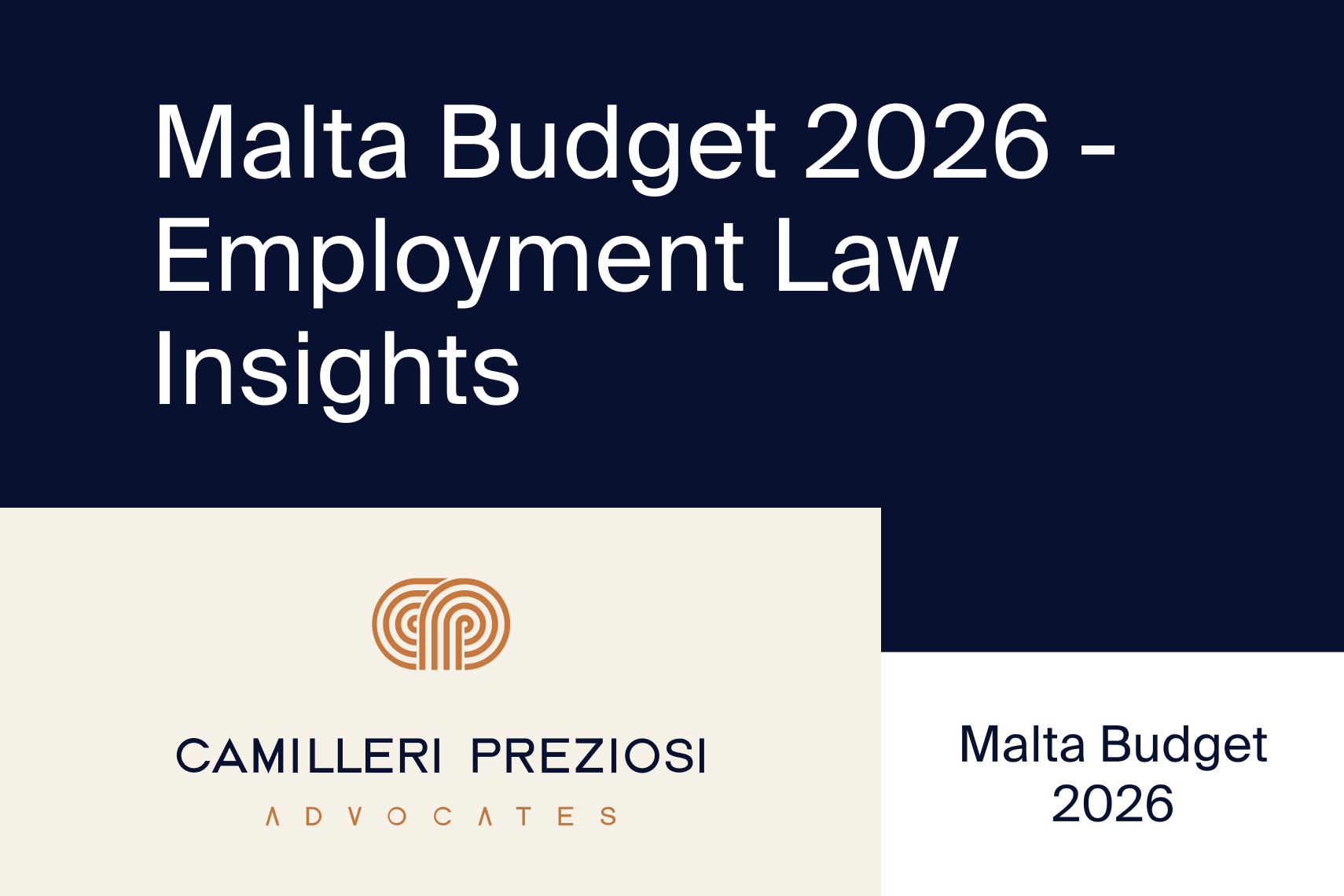
The Malta Budget 2026, presented on 27 October 2025, reaffirms the Government’s focus on social equity, workforce retention, and skills development, signalling investment in both people and productivity.
Here are the key takeaways for employers from an employment law perspective:
Cost-of-Living Adjustment (COLA)
The COLA for 2026 has been set at €4.66 per week for full-time employees (pro-rata adjustment for part-timers). Employers should update employment contracts, payroll systems, and payslips to reflect this adjustment from 1 January 2026.
New Tax Bands for Families
A key social measure will benefit over 68,000 families, saving around €160 million in savings.
- Married couples with one child: 0% tax band rises from €15,000 to €17,500 in 2026, €20,000 in 2027 and reaching €22,500 by 2028.
- Couples with two or more children: will benefit from a higher €22,500 threshold in 2026, set to reach €30,000 by 2027 and €37,000 by 2028.
Rewarding Long Service
A new employee retention measure has been introduced under the Micro Invest scheme, designed to reward long-serving employees and promote wage progression.
- Employers who raise salaries of employees with 4+ years of continuous service will receive a 65% subsidy of the wage increase for two years (capped at €780 per employee per annum).
- For Gozo-based employers, the subsidy increases to 80%, capped at €960 per employee per year.
New Leave for Neonatal Care
A new statutory leave entitlement will support parents whose newborns require intensive or additional care immediately following birth. While this leave is expected to be funded by Government, employers should be prepared to revise internal leave policies and procedures once the law is enacted.
Future Leave Developments
The Government also confirmed ongoing discussions with social partners to extend maternity and paternity leave, and to explore a “leave donation” model, enabling employees to transfer unused leave to colleagues facing exceptional circumstances.
Forthcoming Pension Reforms
Although not finalised in this Budget, one of the most impactful forthcoming measures is the mandatory auto-enrolment occupational pension scheme. Whilst yet in the horizon, employers should review current remuneration structures, as these may directly affect bonuses and allowances that may interact with pensionable pay.
AI and Digital Skills Investment
In line with Malta’s broader digital innovation agenda, Government will launch a new national AI training programme, offering free courses and certifications. Participants will be given access to AI tools such as ChatGPT and Gemini upon completion. Employers are encouraged to update their AI usage and data governance policies to regulate use of AI tools in the workplace, ensuring compliance with the GDPR and other confidentiality standards.
Increased Employee Awareness
A national campaign will educate employees on their rights and working conditions. With awareness, likely to drive more individual claims and inspections, employers are encouraged to undertake proactive compliance audits – reviewing payslips, working time records, and leave entitlements, to minimise risk.
Labour Migration Compliance
The Government reaffirmed its commitment to the stricter Labour Migration Policy introduced via Jobsplus. Employers engaging third-country nationals (TCNs) must ensure full compliance with work permits, residence, and onboarding procedures.
The 2026 Budget continues to shape Malta’s employment landscape – with a clear emphasis on fairness, flexibility and future readiness. Should you wish to discuss how the Budget 2026 measures may affect your business, or need guidance on employment law compliance, please get in touch with ron.galeacavallazzi@camilleripreziosi.com or iana.said@camilleripreziosi.com









